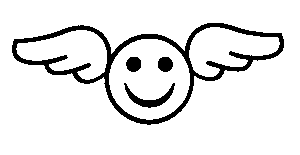Taylor Lorenz on living life Extremely Online
Taylor joins the Digiverse to discuss her forthcoming book, the dream of a better internet, and the TikTok comment section
2023-07-03
Thumbnail and banner: photo by Brian Treitler, collage by The Digi Fairy
Taylor Lorenz gets the internet. She was one of the first to take it seriously in traditional publishing, back in 2009 when editors were still hesitant to see online culture as a real beat. Now a columnist covering technology and online culture at The Washington Post, Taylor has written about the economics of extremism on social media, the impact of virality, and the emergence of the niche internet micro celebrity (and basically anything else you need to know about what’s going on on the internet). And Taylor not only writes about life online, she lives it. The bio of her verified Instagram account, populated by clips of Taylor on live news explaining everything from Elon’s Twitter takeover to West Elm Caleb, is the beginning of a meme rabbit hole, leading to several accounts she uses to shitpost with the best of ‘em. Taylor joins the Digiverse to discuss her forthcoming book (preorder here <3), the dream of a better internet, and the TikTok comment section.
The Digital Fairy: Tell us about your book Extremely Online.
Taylor Lorenz: My book Extremely Online: The Untold Story of Fame, Influence, and Power on the Internet comes out this fall. It's a social history of social media. We've had so many books talking about the rise of these platforms from a corporate standpoint and telling the business story. My book is really about the users, and specifically the power users, which people call creators or influencers, and how they've shaped the platform and how that industry has evolved over time.
DF: The term ‘extremely online’ has become such a signifier. What constitutes an extremely online person to you?
TL: We're all extremely online — the internet is increasingly shaping every aspect of our lives and our daily experiences. I mean, I think that it's only a matter of time before we sort of have this technology in our brains. Not to sound like Elon, but even [with] wearables and things like Amazon Alexa. And now with these large language models, the way that we talk to computers is changing and getting more personal. There's no escaping the internet — it’s completely intertwined with culture. People used to talk about a separation of logging on and dipping into the internet and now I think the internet is our default reality.
DF: That's so interesting. In the past, people have defined 'extremely online' to distinguish people that are online from those that aren't and what that behaviour looks like. But it's like that definition isn't as relevant anymore.
TL: That's how the term emerged, but the thing is we're all extremely online now. And my book is the history of how we got here.
DF: Yeah, it definitely had that "touch grass" connotation at first. What are some of the most significant changes you've seen to the creator economy in the past few years?
TL: Our entire media ecosystem continues to become more distributed, more creator-driven, and more personality-driven. The internet is not getting less digital and our media ecosystem is not getting less digital. The way we consume is not getting more consolidated. Everything is getting more internet-driven, as we become more online and as the digital world fuses with the real world.
DF: What can we expect next?
TL: Our media ecosystem is moving more and more towards this distributed world where you can find hyper-niche content about every single interest. More and more individuals are empowered to put themselves out there and create content or express themselves on the internet. I definitely think there's a trend away from mass posting to all and [towards] using platforms like TikTok, where people trust that the algorithm will deliver your content to the right people, or to smaller communities. This era of going on Twitter and posting to everyone in the entire world and needing followers to find your content is definitely over. We have these better A.I.-driven technologies, led by TikTok, where you don't need that follower-based model. Obviously, followers are a signal for content, but they're not the primary mechanism of delivery.
DF: What do you think about this increasing nostalgia for tech interfaces and tech products from the recent past, from Frutiger Aero to wired headphones and old iOS systems?
TL: I would argue [wired headphones] are just superior to AirPods. I'm a big wired headphones apologist. I'm also thinking of that account @left4rat. She posts a lot of nostalgic and "basic" content. I think people are nostalgic for a simpler time and a simpler internet before it was plagued with the platform manipulation and extremism that's become so common in today's online world. I think we all want to get back to spaces where we feel free to express ourselves. The rise of extremism has been tied with huge restrictions on free speech. We all know how tightly restricted [platforms are now] and I think people want spaces to express themselves, communicate and connect that aren't weaponised by bad actors who just want to harass everyone and bash trans people. [We just want to] be on a better internet.
DF: In terms of looking to the past to somehow imagine a better future on the internet, the topic of the differences between Gen Z and millennials and how they use the internet and social media is something that really comes up a lot.
TL: Obviously there's generational differences in how people use the internet. That’s true of even a 14-year-old versus a 20-year-old. User behaviour shifts with age and a lot of user behaviours get locked in early. So, you see millennials posting a certain way on Instagram because that's how they understand Instagram. Instagram plays a very different role in their lives than it does for younger generations or older generations. We all have different use-cases for these technologies. And they shift as we age and I think it's fun to poke fun at that. It's so interesting to parody those user behaviours, because it reveals something about ourselves and how we use technology.
DF: It’s an interesting time for digital culture analysis. There's almost like this trend “extremism” happening where people are dividing these trends and aesthetics by the most extreme line.
TL: I feel like we're in this golden age of analysis, where there's not a lot of people that can report new information. And so what you see on TikTok is this huge amount of people that take originally reported information and the only way they really can add value is through analysis. So there's such an insane amount of people creating analysis content, which I think is really fun and interesting. Some of them are very good, but some of them are uninformed and bad. But I think there's this trend towards this sort of this trend “extremism”, because they need to compete in a world where everyone is a trend forecaster now and everyone can give analysis. I think TikTok empowers everyone to kind of share their voice and share their take on things. And if you give people a trend that plays into preconceived notions and stereotypes, it's going to go viral. And I think that's a loss for all of us, because we lose out on this more thoughtful analysis.
DF: We've seen young people on TikTok resurfacing those images of millennial influencers or even alternative teenagers getting into the ‘Christian Girl Autumn’ aesthetic. I think there's some sort of connection between that and your thinking around cringe, like young people are trying to go beyond cringe to indulge in these aesthetics, like the millennial aesthetic on Instagram, freely.
TL: It just goes back to the nostalgia for the simpler internet and wanting this uncomplicated online world where you could just post an Instagram of your cappuccino with a sort of vague caption and that would be enough for the week. You didn't have to produce content, wade into discourse, and navigate these horrible platforms that are being manipulated for bad purposes every day, you know?
DF: Do you think it's possible to actually go back there in any way?
TL: No, just in the way that I think we can't return to history. I think we can get these little pockets that feel like that. I mean, I came from Tumblr, and I wish every day that we could go back to Tumblr. But I don't know that we will. I pray that Tumblr has a resurgence, but even so it wouldn't be the same platform as it was back then. Because the culture changes, so we'll never have the same culture that we did. That's just the nature of it. I think we'll have these nostalgia pockets and things that take off because they're reminiscent of that time, but that time is gone forever. There's no way to put the genie back in the bottle, especially when it comes to the hate, extremism and platform manipulation.
DF: That rings true. Have you ever looked at Addison Rae's Tumblr blog?
TL: No!
DF: I will send it to you right now. She adopts the aesthetics of Tumblr, with these GIFs of her or filtered photos that really remind you of the early 2010s. But once again, we've gone past that point in culture. Even with someone like her using it, it feels like more of a spectacle than something that's super sustainable.
TL: Oh, my God, this is so retro.
DF: She also answers anonymous questions. She's really gone the extra level with engaging with Tumblr.
TL: I want Addison to bring back Tumblr. Please!
DF: Honestly, I believe in her. So, how has the technology and digital culture writing and commentary landscape changed since you started?
TL: Well, there was no landscape when I started in 2009. It didn't exist. And I had to fight very hard for years with editors at almost every single publication to get people to take this stuff seriously and to recognise what's happening. In 2017, I wrote a story on Gen Z marketing consultants and I think that was a turning point because, and I write about this in my book, 2017 was such a pivotal year in online culture. That's when Gen Z really started to exert power on the internet. And so you started to see this true digital native generation emerge that always took internet culture seriously. And then you also saw things break through — the Adpocalypse was that year and Logan Paul vlogging a dead body became national news. And people started to say, “Whoa, there's things happening online that actually millions of people are paying attention to that the mainstream media is ignoring”. And that was also the year that Donald Trump became president. I covered Trump's campaign and his rise is so tied with internet culture — he got into office by leveraging the internet and the power of influencers. I think that's also when you saw these extremists starting to really exert influence. Suddenly you saw people taking the internet seriously and editors wanting these stories. And every single story that I wrote blew up in an insane way. What makes me so happy now is that there's so many more people covering this beat. I think we could have a hundred more reporters covering this beat and not run out of stories.
DF: Do you think that there is going to be a continued taste for what people call the return to blogging with Substack? People are really trying to point to this tension between something like TikTok that's short form and something like Substack that's more long form and thoughtful.
TL: No, they complement each other, 100%. You have your TikTok for certain things and you have your Substack for certain things. One thing that I think is lost with Substack is this collectivism that people have on other platforms. There's this website Byline that I started writing little opinion pieces for — it's a collective of writers that want a place to collaborate. I think that's really cool and I would love to see more writers do that. No one wants to write alone in a vacuum. And that's what's been so hard with Substack. People are like, "Everyone can make a living on Substack", but it's very isolating. Part of what got me into blogging was Tumblr, because I had blogs before, but it was that collectivism and collaboration that you had with other people [on Tumblr].
DF: With the collective aspect, there's not this pressure to be rolling out these incredibly insightful internet thinkpieces non-stop because you're working with other people.
TL: You can kind of supplement with their content. So much of my blog was amplifying other people's interesting posts and reblogging. I think that whole ecosystem will evolve. But written content will always exist in some form. And I think it's a complement, not a replacement.
DF: What do you think about the dynamic of the comment section on TikTok?
TL: What's unique is that you can create content off of it. You could never do that on YouTube or Instagram — you can't reply to a comment with content. It goes back to amplifying commentary and lifting commentary up onto a higher level. Commentary was previously relegated to the comment section. And it was always understood to be like a lesser form of content. And you know, "Don't feed the trolls, ignore the comments, never read the comments". I think TikTok amplified comments and commentary to almost an equal form of content on par with the actual original post. I think that's really cool, because we get to hear all these interesting perspectives and sometimes the comment section is very funny. I love that. But also, it's given rise to a lot of really vicious behaviour. I always say TikTok is a combination of Twitter and YouTube commentary culture and that's a very toxic mix. Meanwhile, TikTok does not do enough for user safety. You can only block fifty words from your comments section. That's woefully inadequate and it doesn't keep creators safe. They need to do better, but I'm sure that they won't, because that would hurt engagement.
DF: If you do get to the point where you can't take the comments anymore and you turn them off, then that's almost like a signal to the viewer that the comments were really negative. So then they'll leave a negative comment on another video.
TL: Exactly. Also, it sucks to watch a video with no comments. I always hop in the comments immediately myself.
DF: Last but not least, are there any meme accounts you're loving right now?
TL: Good question. I mean, a million. I love @northwest_mcm_wholesale, and anyone that I follow on my meme account.

Welcome to the Digiverse, your portal to internet enlightenment.
From IRL to URL, digest the best of algorithm-driven culture – news, trends and insights – powered by The Digital Fairy.










